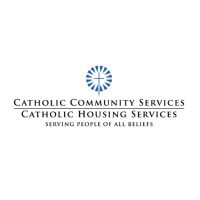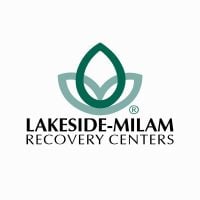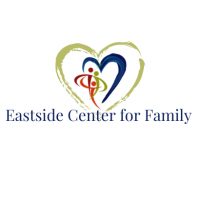Central Seattle Recovery Center
Drug Rehab Center in Seattle, Washington
- Opioid Addiction
- Dual Diagnosis
- Drug Addiction
- Alcoholism
The Central Seattle Recovery Center is a licensed, accredited addiction treatment facility offering evidence-based treatment and holistic approaches with a focus on empowering individuals to create their own customized recovery plan for sustained sobriety and a self-sustaining, recovery-oriented lifestyle.
Multiple patients have reported Central Seattle Recovery Center as permanently closed.
Research other rehabs in Seattle, Washington, or get help finding an open facility.
Our experts will find you an alternative facility.
(888) 674-0062 24/7 Free, Confidential, Expert HotlineAbout This Washington Facility
Central Seattle Recovery Center (CSRC) is a comprehensive addiction treatment facility located in Seattle, Washington. CSRC specializes in helping individuals suffering from drug and/or alcohol addiction, as well as other co-occurring mental health issues. They provide a safe, supportive environment in which individuals can receive evidence-based treatment from knowledgeable and compassionate professionals. Their goal is to empower individuals to build a foundation of sobriety, develop life skills, and cultivate a unique recovery plan that can be sustained over the long term.
CSRC provides a spectrum of addiction treatment services that include individual, group and family counseling, crisis intervention, relapse prevention, spiritual counseling and weekly 12-step meetings. They also provide holistic treatment such as yoga, meditation, and mindfulness exercises, in addition to educational awareness classes about substance use and recovery. At CSRC, clients are actively involved in creating their own customized recovery plans and are provided with resources to help them build a self-sustaining, recovery-oriented lifestyle.
CSRC is committed to providing quality care and services to individuals in recovery and is licensed by the Washington State Department of Health. Their staff is comprised of licensed counselors and medical professionals that are passionate about helping individuals reclaim their life. Additionally, CSRC is accredited by the Joint Commission for Quality Patients Care, upholding the highest standards of care within the field of addiction treatment.
Genders
Ages
Modality
Additional
Conditions and Issues Treated
Opioid addiction treatment should be done in a medically supervised drug rehab. Opioid addiction treatment will include detoxification and drug rehab counseling to help both the user and their loved ones learn how to live a successful sober lifestyle. Methadone, buprenorphine, and naltrexone are three medications that can help treat opioid addiction. Individual drug rehab counseling sessions can be helpful to discuss any questions or concerns with the drug treatment program.
Levels of Care Offered at Central Seattle Recovery Center
This center offers a variety of custom treatment tailored to individual recovery. Currently available are Aftercare Support, Drug Rehab, Outpatient, with additional therapies available as listed below.
Individuals struggling with drug addictions can get help from several treatment options, including inpatient and outpatient programs. Outpatient drug treatment programs can also provide patients with different levels of care, usually depending on the patient’s degree of addiction.
At an outpatient program in Seattle, a patient will attend a recovery program during the day and return home in the evening. Suppose a patient is struggling with drug addiction. In that case, an outpatient program can serve as an effective transition point during the recovery process.
Aftercare is a part of drug rehabilitation. It is also known as “post-treatment support.” Aftercare programs are available for addicts after they complete drug rehab. It is often the final step in the recovery process. The goal of aftercare is to ensure that addicts maintain their achievements in rehab and do not relapse. Professionals generally provide aftercare (including addiction therapists, physicians, social workers, psychologists) and involve individual and group therapy sessions.
Therapies & Programs
Individual therapy is a critical component of addiction recovery. It allows the patients to go deep into their core issues and discover how to handle those problems better. Therapy can be conducted in individual sessions as well as group settings. In individual therapy for addiction, the patient meets with their therapist one-on-one to focus on the underlying issues. This allows patients to open up and discuss personal topics they may not feel comfortable discussing in a group setting. This type of therapy can help develop solutions specific to each patient, which helps speed up the recovery process.
Couples therapy is beneficial for couples in which at least one partner has a substance use disorder. This type of therapy can help partners improve communication skills, which is an important factor in a healthy relationship. It can also help partners better understand one another so they have a greater understanding of how the other partner may be feeling.
Benefits of couples therapy include:
- Improvement in communication skills
- Increased understanding of the dynamics within a relationship
- Increased sense of support and trust in the relationship
- Better teamwork between partners/increased willingness to listen and work together
- Enhanced tolerance of each other’s shortcomings
- Improved ability to have open, honest communication with each other
Family therapy is a crucial part of drug treatment and getting sober. It is one of the most effective ways to help addicts stay on the path to long-term sobriety. When a drug addict decides that they want to try and get sober, it takes the support of every person they love to succeed. It can be incredibly difficult for loved ones to watch an addict go through the pain and suffering of withdrawal, but by being there with them and supporting them, they can help to make sure that the addiction never returns.
One of the most important parts of family therapy is the relapse prevention plan. During treatment, therapists and doctors will often sit down with the addict and their family to develop a plan in case the addict ever feels like they want to use again. This plan should involve steps the addict and family can take together to prevent them from relapsing in the future. An addict’s family can play a vital part in helping them to avoid relapse because they can spot the warning signs and help them get back on track before it becomes too much of a problem.
Group therapy helps prevent addicts from feeling isolated or unique in their situation by offering a sense of comfort and fellowship. It also creates a forum for addicts to build their support systems and learn from each other. The group therapy sessions at Central Seattle Recovery Center occur in a group setting rather than one-on-one to create a safer, controlled environment where addicts feel comfortable.
Additional Details
Specifics, location, and helpful extra information.
Seattle, Washington 98122 Phone Number(206) 322-2970 Meta DetailsUpdated November 25, 2023
Staff Verified
Patient Reviews
There are no reviews yet. Be the first one to write one.
Seattle, Washington Addiction Information
Washington's substance use, abuse, and addiction rates have followed the trends of the rest of the over the past years. Methamphetamine abuse is the biggest threat to Washington. Heroin-related overdoses increased by almost 450% from 2006 to 2016. 20% of all annual deaths in Washington are somehow drug and/or alcohol-related. Drugs are widely abused in Washington because they are easily trafficked in and out of the state.
In Seattle, Washington, drug addiction is a big problem. In 2016, there were nearly 500 drug overdose deaths in Seattle, with opioids responsible for most of those deaths. 4.5% of people aged 12 or older reported using psychotherapeutic drugs for nonmedical purposes. Some of the most common treatments include inpatient rehab, outpatient rehab, and detox centers.
Treatment in Nearby Cities
- Battle Ground, WA (126.7 mi.)
- Brush Prairie, WA (130.0 mi.)
- Keller, WA (171.7 mi.)
- Federal Way, WA (19.6 mi.)
- Davenport, WA (194.2 mi.)
Centers near Central Seattle Recovery Center
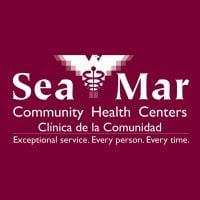
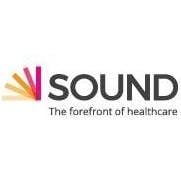
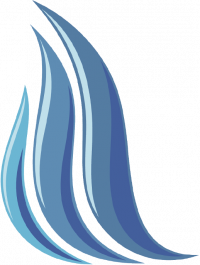

The facility name, logo and brand are the property and registered trademarks of Central Seattle Recovery Center, and are being used for identification and informational purposes only. Use of these names, logos and brands shall not imply endorsement. RehabNow.org is not affiliated with or sponsored by Central Seattle Recovery Center.

